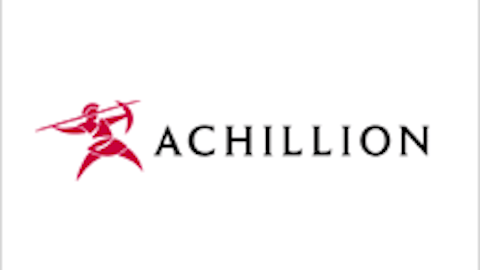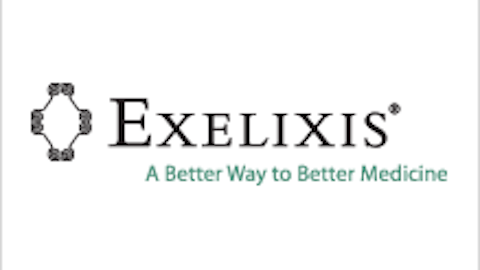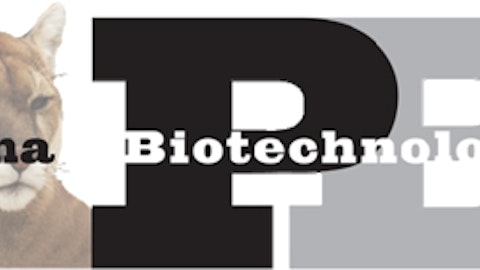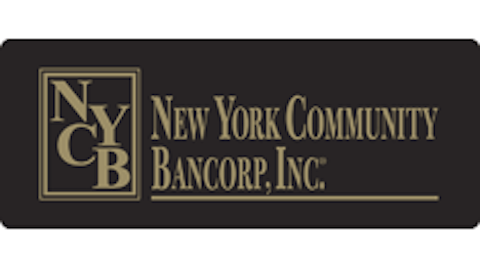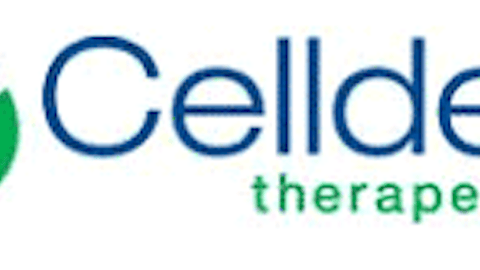Shares of Exelixis, Inc. (NASDAQ:EXEL) have soared by more than 50% today following the release of positive phase 3 trial data from a test of its cancer drug cabozantinib (Cometriq) against everolimus (Afinitor), which shows the former significantly improved patients’ chances of survival or prevented their cancer from worsening compared to the latter. Afinitor is the leading drug for the treatment of metastatic renal cell carcinoma (kidney cancer) in patients whose condition has worsened followed treatment by VEGF receptor tyrosine kinase inhibitor (TKI) treatments. The trial result data, which was released early and only included the results of the first 375 of the trial’s 658 patients because the results were so significant already, showed a 33% reduction in the likelihood of death for those patients on Cometriq as opposed to those on Afinitor. Furthermore, there was a 42% reduction in either the occurrence of death or the progression of the disease. The results could open up Cometriq to becoming the go-to treatment for kidney cancer when drugs like Sutent prove ineffective, greatly enhancing its revenue potential. The drug is already approved for the treatment of medullary thyroid cancer, but that pulls in just $25 million in revenue annually owing to the relative scarcity of the disease. The American Cancer Society estimates that there will be 62,450 cases of thyroid cancer in 2015, of which only 3%, or about 1,874, will be medullary thyroid cancer. On the other hand, there are approximately 17,000 patients who would be eligible to take Cometriq for their kidney cancer.

The smart money clearly didn’t expect the positive results from the phase 3 trial, as the top investors in the world were slightly bearish on Exelixis, Inc. (NASDAQ:EXEL) in the first quarter of the year, not that it’s hard to blame them; the 20-year-old biopharmaceutical company has had little success bringing drugs to market, and last year failed in its trial to improve mortality in patients suffering from advanced prostate cancer. Exelixis was in ten hedge funds’ portfolios at the end of March among those we track. There were 12 hedge funds in our database with Exelixis holdings at the end of the previous quarter. The aggregate value of their holdings in the company did increase substantially, to $31.85 million from $19.46 million, however the stock was up by 78.47% during the first quarter, greater than the growth rate in holdings, which means there was also a collective selling of some shares. In this case the smart money has certainly been wrong, as shares have more than doubled since the end of the first quarter, and are now up by more than 300% year-to-date.
At Insider Monkey, we track hedge funds’ moves in order to identify actionable patterns and profit from them. Our research has shown that hedge funds’ large-cap stock picks historically underperformed the S&P 500 Total Return Index by an average of seven basis points per month between 1999 and 2012. On the other hand, the 15 most popular small-cap stocks among hedge funds outperformed the S&P 500 Index by an average of 95 basis points per month (read the details here). Since the official launch of our small-cap strategy in August 2012, it has performed just as predicted, returning over 139% and beating the market by more than 80 percentage points. We believe the data is clear: investors will be better off by focusing on small-cap stocks utilizing hedge fund expertise (while avoiding their high fees at the same time) rather than large-cap stocks.
We also monitor insider activity, another important metric for recognizing prime buying opportunities in stocks. However there has yet to be any insider activity at Exelixis this year.
Keeping this in mind, we’re going to review the recent action regarding Exelixis, Inc. (NASDAQ:EXEL).
What have hedge funds been doing with Exelixis, Inc. (NASDAQ:EXEL)?
At the end of the first quarter, a total of ten of the hedge funds tracked by Insider Monkey were bullish in this stock, a drop of two from one quarter earlier. With hedge funds’ sentiment swirling, there exists a few notable hedge fund managers who were boosting their stakes considerably.
According to hedge fund intelligence website Insider Monkey, Mark Lampert‘s Biotechnology Value Fund / BVF Inc had the biggest position in Exelixis, Inc. (NASDAQ:EXEL), worth close to $12.8 million, corresponding to 2.7% of its total 13F portfolio. The second-most bullish hedge fund manager was Graham Capital Management, led by Kenneth Tropin, holding a $5.9 million position; the fund had 0.3% of its 13F portfolio invested in the stock. Similar peers that hold long positions comprise Israel Englander‘s Millennium Management, and Dmitry Balyasny’s Balyasny Asset Management.
Given the positive trial data, Exelixis certainly looks like a good investment at this point. However, there is competition looming in the form of Opdivo, which was also shown to be more effective than Afinitor in phase 3 trial data also released today, and which was stopped early because the trial had already met its endpoint, though specific figures were not released. Thus, it’s difficult to recommend Exelixis at this point given the already meteoric rise of its shares this year.
Disclosure: None
